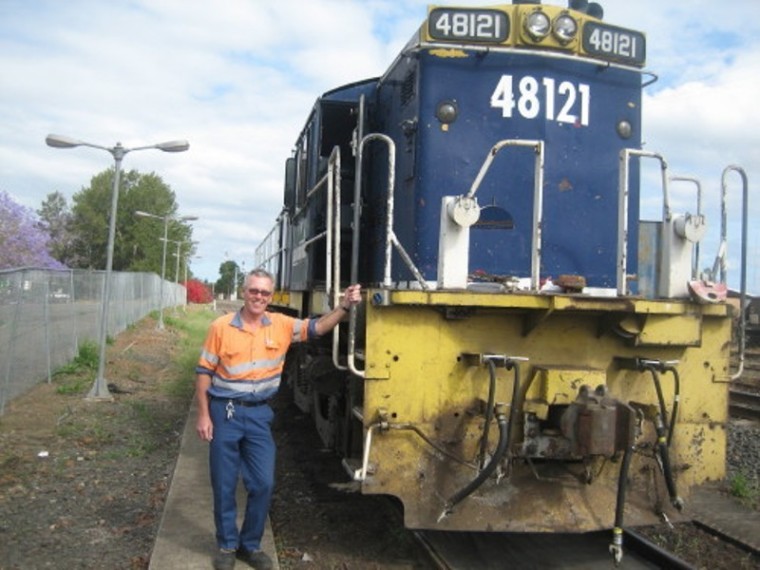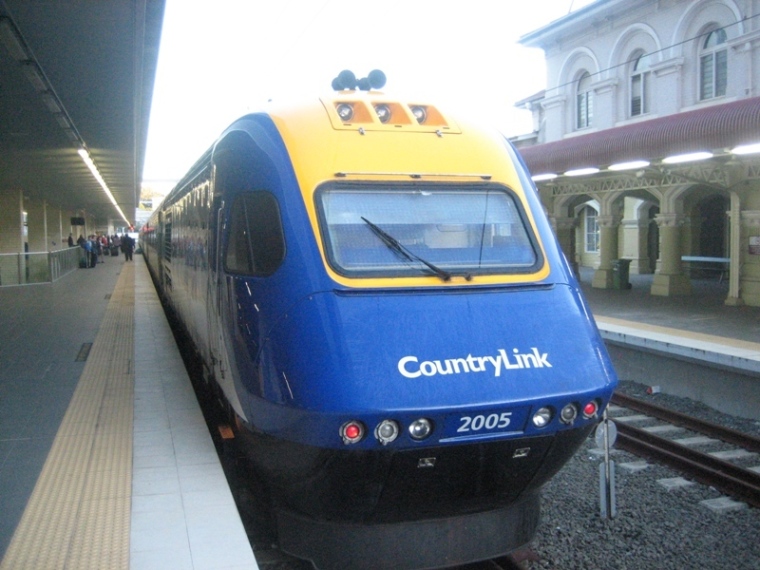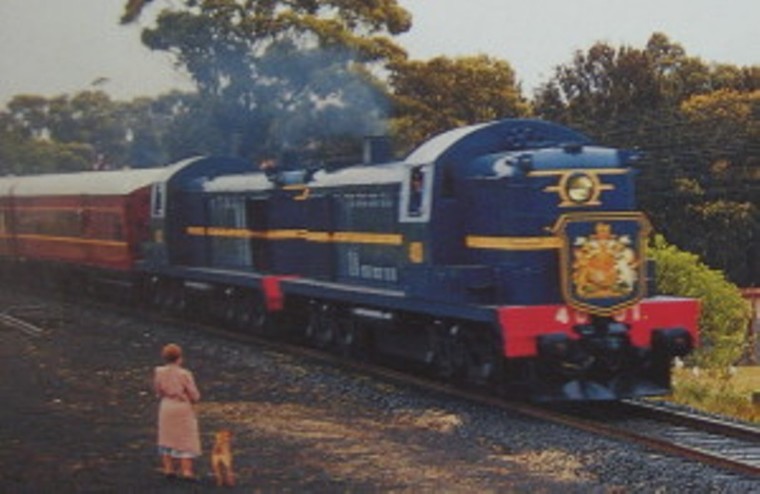
As the Fooptlate Padre and a former locomotive engineman, I am one person who is able to attest that it takes kilometres to bring a train to a halt.
This is reality. This is not like a motor vehicle. This is one of the most difficult concepts for the public comprehend. Queensland State Coroner Michael Barnes acknowledged this fact in his findings after a fatal railway accident.
Trains run on steel wheels, on very heavy steel rail tracks, and as strange as this might seem, the heavier the train is, the better a train runs once it has gathered it's initial speed.
A heavy train does as much free wheeling as it does powering.
I was a locomotive driver for ten years - I have continued my interested in all things railway - since entering theological college as a mature aged student in 1977. I have since written 16 books on railways, most of them train driver's anecdotes which are replete with stories of train running.
Explaining the braking
The train driver needs to take into account passenger comfort and safety, especially for those trains with sleeping compartments.
Initially, the driver would make a 7lb air reduction into the braking system which steadied a fast moving train into a manageable controlled situation. As the train needed to be slowed firmly, a 14lb air reduction was then applied by the driver.
A little explanation is required. The Westinghouse air brake system works on every rail wagon running with a fully charged air pipes of compressed air from the engine to the end of the train. The brakes are applied when some of that compressed air is released through a valve, as if the compressed air is holding back the mechanical brake pads from clamping onto the wheels.
When the train driver applied the brakes, say 7lb of air pressure is released, every freight wagon or rail passenger car's brake system works in unison. Every rail car is connected by super strength rubber hoses for this compressed air and should a weakness occur in any of those rubber hoses and is torn open, every brake on the train is applied.
The fireman's hob was to take one of the spare rubber hoses and change it over whether it was rain, hail or spitting hot. I can attest to this, having done this task on many an occasion.

Braking the train
Slowing a train running at say 115 km/hr (70 miles an hour) takes a surprisingly long time and the train travels a long way while all this is taking place. The kinetic energy involved is astonishing; and this energy needs to be counteracted by the force of the braking system.
Consider a heavy freight train hauling a top speed container express. The train driver's skills are critical, as the driver needs to know from experience, when to apply the minimum brake reduction of 7lb air, then when to apply a heavier 14 lb application of the brakes.
The train driver's intimate knowledge of the rail track becomes imperative so as to maintain tight timetables and high speed. This is referred to as 'road knowledge' and a driver must pass a practical set of tests by locomotive inspectors to proceed onto 'driver'.
Consider anything out of the ordinary appearing on rail tracks – such situations are beyond a train driver's control. In my years as a locomotive engineman I have seen the after affects of animals being hit by trains, trucks and motor vehicles.
The driver's assumption is that the track is clear. Should a track blockage of some description be seen by the naked eye, to bring a train to a fast moving train to a halt within such a distance is not usually viable.
I recognise the physics and the emotional side of never knowing what might be around the corner. Train drivers need to trust that the line is clear.
Life too is like that.
Jesus alerted us to this when he spoke of how the flowers in all their beauty are gone tomorrow and how much more precious we are in God's sight.
Trust and faith are essential ingredients for each person to live their lives. For the follower of Jesus this trust and faith extends further still, it is the ingredient of assurance that sins are forgiven, the Holy Spirit lives within us and our lives are within the remarkable and wonderful and delightful mandate of God.


Dr Mark Tronson - a 4 min video
Chairman – Well-Being Australia
Baptist Minister 45 years
- 1984 - Australian cricket team chaplain 17 years (Ret)
- 2001 - Life After Cricket (18 years Ret)
- 2009 - Olympic Ministry Medal – presented by Carl Lewis
- 2019 - The Gutenberg - (ARPA Christian Media premier award)
Gutenberg video - 2min 14sec
Married to Delma for 45 years with 4 children and 6 grand children